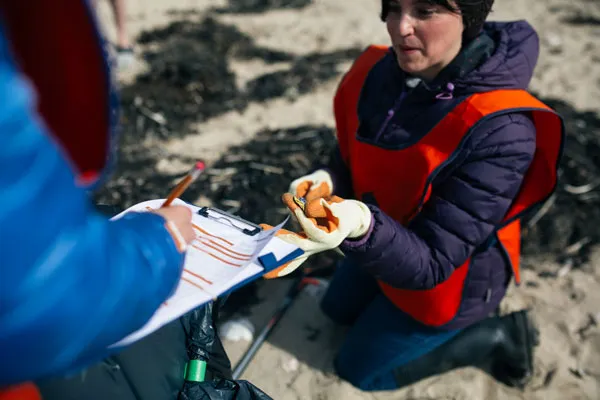That’s the findings of a new report by the Marine Conservation Society (MCS), which revealed plastic bottles to be the biggest culprit, with 8,000 plastics bottles collected overall and 99 bottles picked up per kilometre – an increase of 43% on 2014 figures.
Plastic bottles on beaches rose by 57.2% in England, 21.3% in Scotland and a whopping 235.3% in Northern Ireland. In Wales they dropped by 39.4 %, however this is in line with the overall drop in the country’s litter levels, which still remain higher than the national average.
The conservation charity recorded litter collected during the Great British Clean Up, which took place in September 2015 and saw more than 6,000 volunteers pick up litter across 340 beaches from Orkney to the Channel Islands.
The survey recorded 118 different items of litter and filled 2,556 bin bags.
Plastic topped the list of items picked up, with drink bottles, crisp and sweet packets, drink straws and caps among the most common items found, with glass, rope, pieces of fishing net and cigarette butts also making the top 10.
All countries saw an increase in beach litter, with the exception of Wales, where levels dropped after a record rise the previous year. However according to the MCS, average litter levels on Welsh beaches have increased by 51 per cent in the last decade.
England saw record levels of litter across 189 beaches, with highest levels of rubbish - averaging 5,170 items per kilometre - in the South West. Much of this litter comes from fishing and public litter.

Photo credit: Marine Conservation Society
Speaking to BBC Countryfile Magazine, Lauren Eyles, MCS Beachwatch Manager, said: “It's not a great picture for the UK's beaches. Litter is increasing year on year, and unfortunately it is at the highest level it has ever been.
“Only Wales has bucked the trend in 2015 but that’s almost certainly as a result of very high levels in 2014, where more bottles were found on Welsh beaches than anywhere else."
She added: "The bottles we find on beaches are either dropped directly onto the beach, blown from land or sea, or end up there via rivers. The more we use as a nation, the more we’ll see ending up on our shores.”
MCS says the introduction of DRS on all single use drinks containers – plastic, aluminium and glass - will see a massive increase in recycling and a change in people’s behaviour from simply throwing items away. Deposit Return Systems give value to items often regarded as having zero worth and so are disposed of irresponsibly
Following the ‘Have you got the bottle’ campaign led by the Association for the Protection of Rural Scotland (APRS), the MCS is now calling for a Deposit Return System (DRS), which would put in place a financial incentive to return drink bottles, to be put in place in England and Wales.
Eyles said: “It’s a damning indictment that current legislation to stop litter reaching the sea isn’t working. From public litter to industrial waste, fishing litter to fly tipping - this problem belongs to us all, so it can be fixed.”
MCS shares these tips on how you can help reduce beach litter:
- Put rubbish in a bin or make sure you recycle it.
- Get involved in a beach clean – find out more at www.mcsuk.org/beachwatch
- Remember to take re-useable bags shopping
- Make sure your toothpaste, body wash and other bathroom products are free from plastic microbeads.
- Only flush pee, poo and paper down the loo. 6.3% of litter found in the Marine Conservation Society’s Great British Beach Clean weekend in 2015 was likely to have come from people flushing things down the loo.
The next Great British Clean Up takes place on the 16th-19th September 2016. More details on how to take part can be found at: http://www.mcsuk.org/

